Appearance
NZ Regenerative Farms
#nz #video
This is a small selection of NZ regen ag farms, but if there's one I've missed that should be here, please send me their details.
Jersey Girl Organics
what: Dairy, Sheep, Pigs, Chickens
where: Waikato #nz
website: jerseygirlorganics.co.nz
John Vosper is a fifth-generation farmer at Cleavedale Farm near Matamata, New Zealand, continuing a legacy that began in 1911 when his great-grandfather, Cleave Vosper, established the farm. Observing the declining soil structure and a noticeable absence of earthworms, John and his wife, Liz, recognised the need for change. In 1991, they began transitioning to organic farming practices, achieving full BioGro NZ organic certification in 2005.
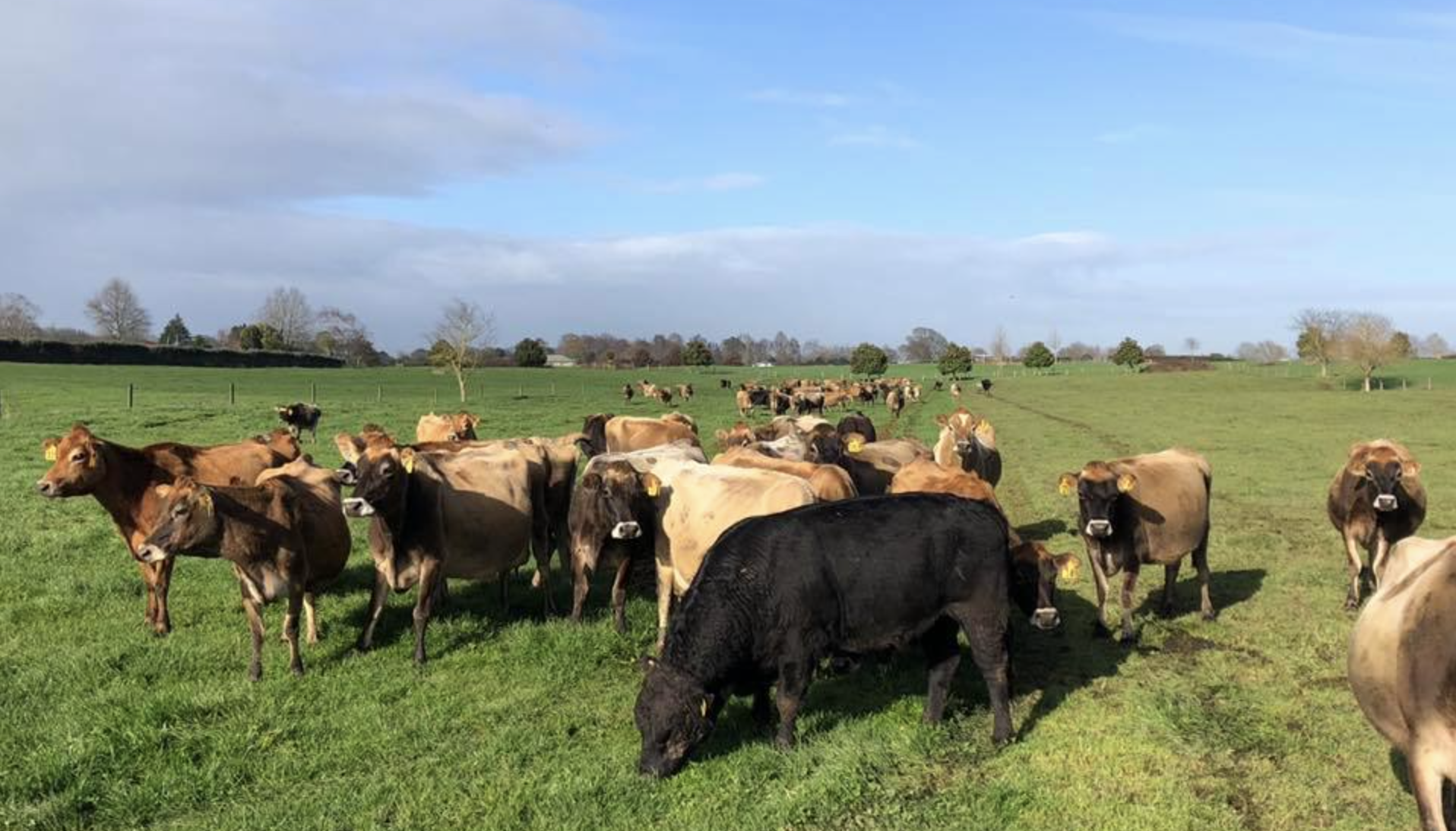
At the heart of John’s farming philosophy is a commitment to natural processes that produce healthy food and animals while enhancing the land for future generations.
By eliminating artificial fertilisers, pesticides, and antibiotics, and by avoiding genetic modification, John ensures that his pedigree Jersey cows lead stress-free lives, grazing on nutrient-rich pastures. This approach not only benefits the environment and biodiversity but also results in milk that is 30% higher in protein and 20% higher in calcium compared to standard milk.
Through Jersey Girl Organics, John offers minimally processed, A2 organic milk bottled on-site, delivering rich, creamy milk with the cream on top—just like in the old days. His dedication to sustainable, ethical farming has earned Jersey Girl Organics multiple awards, including Gold Medals at the Outstanding NZ Food Producers Awards in 2018, 2020, and 2021.
Here's their Country Calendar episode.
Mangarara Farm
what: Beef, Dairy, Sheep, Pigs, Chickens
where: Hawkes Bay
website: mangarara.co.nz
Greg and Rachel Hart's 610-hectare Mangarara Station, also known as "The Family Farm," is a pioneering model of regenerative agriculture in Hawke's Bay, New Zealand. Established with a vision of sustainable land management, the 610-hectare farm incorporates a diverse range of practices, including integrating livestock such as sheep, beef cattle, pigs, and chickens alongside tree planting for fruit and nuts. The farm's aim is to create a regenerative food system that positively impacts the environment and the community.
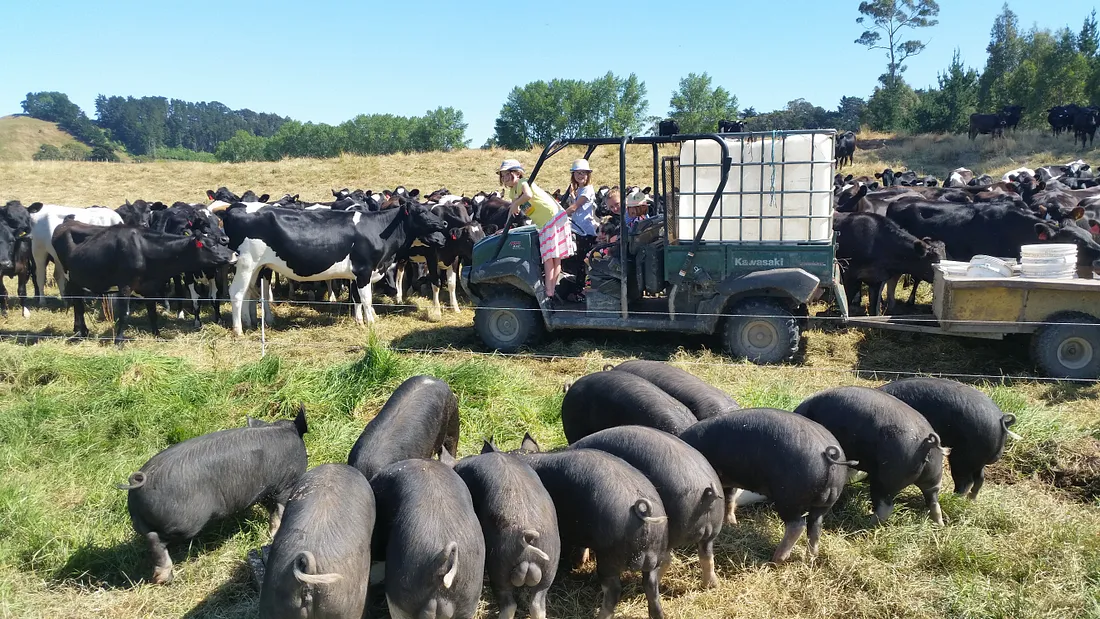
One of their standout achievements was collaborating with Air New Zealand’s Environmental Trust in 2007, leading to the planting of over 85,000 trees over three years. This initiative transformed degraded hillsides into a vibrant ecosystem while fostering public access and education. They also launched a lakeside eco-lodge, built from repurposed materials, which hosts guests for retreats and educational programs.
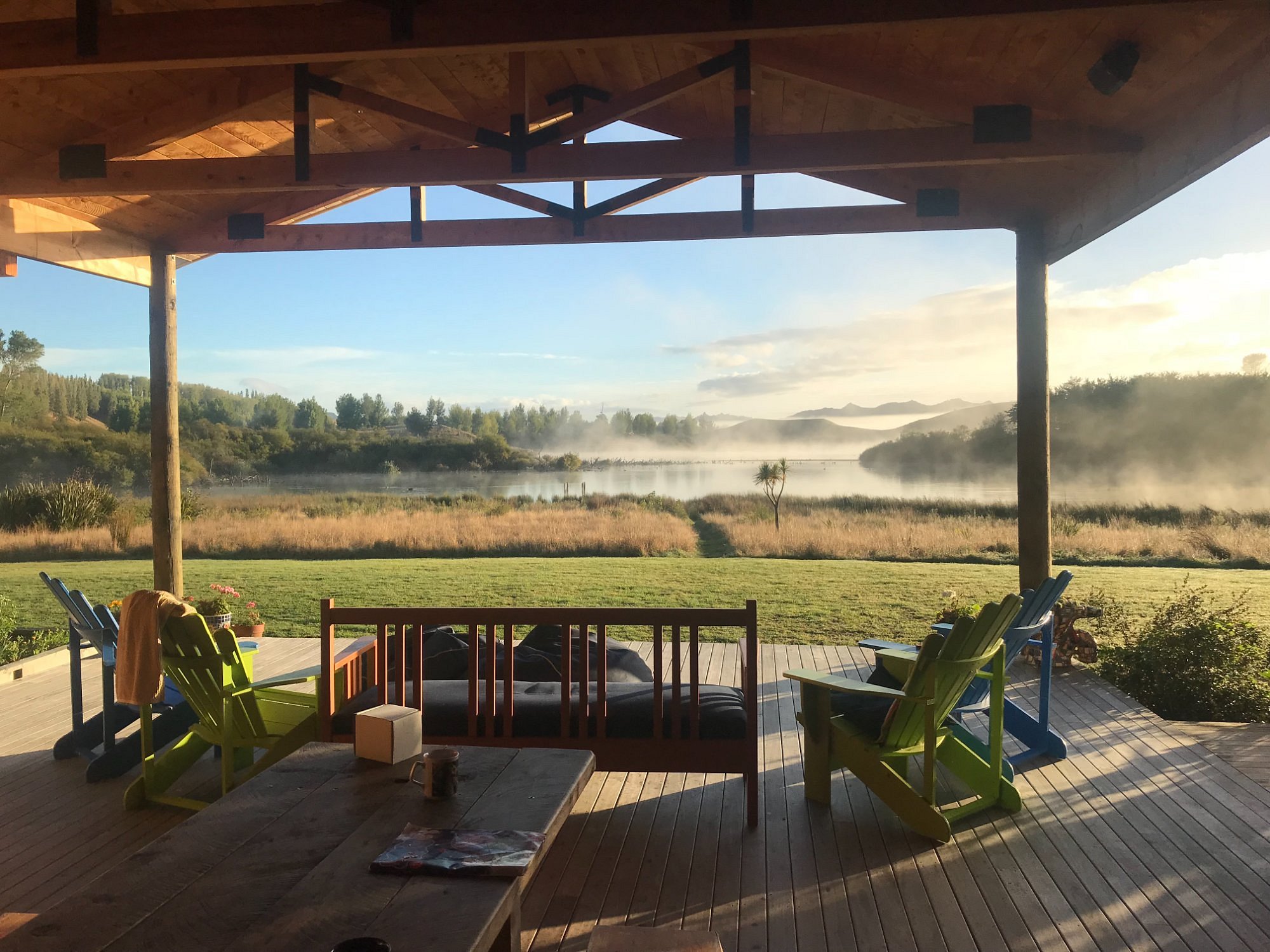
The Harts continue to advocate for holistic farming by running educational workshops, and contributing surplus food to local charities. Their efforts have made Mangarara Station a beacon of how farming can restore ecosystems and sequester carbon.
Glenlands Farm
what: Sheep and Beef
where: Hawkes Bay
website: glenlandsfarm.co.nz
Dean & Antoinette Martin's vision has a firm focus on soil health using regenerative farming principles. Livestock are a tool to achieve this, which yields a biproduct of healthy stock and increased production.
Glenlands periodically host field days so others can see what it is that they do and why. You can also book a stay in their glamorous Safari Tent and arrange a farm tour during your stay.
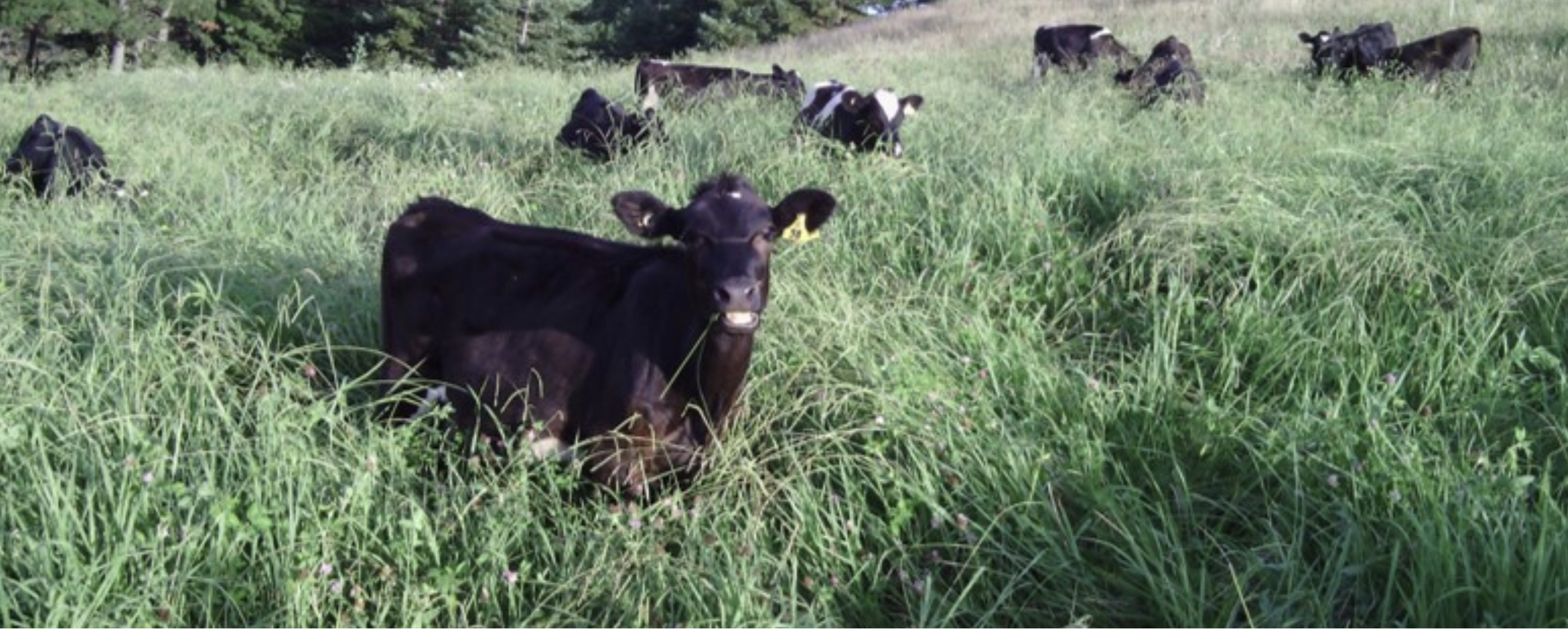
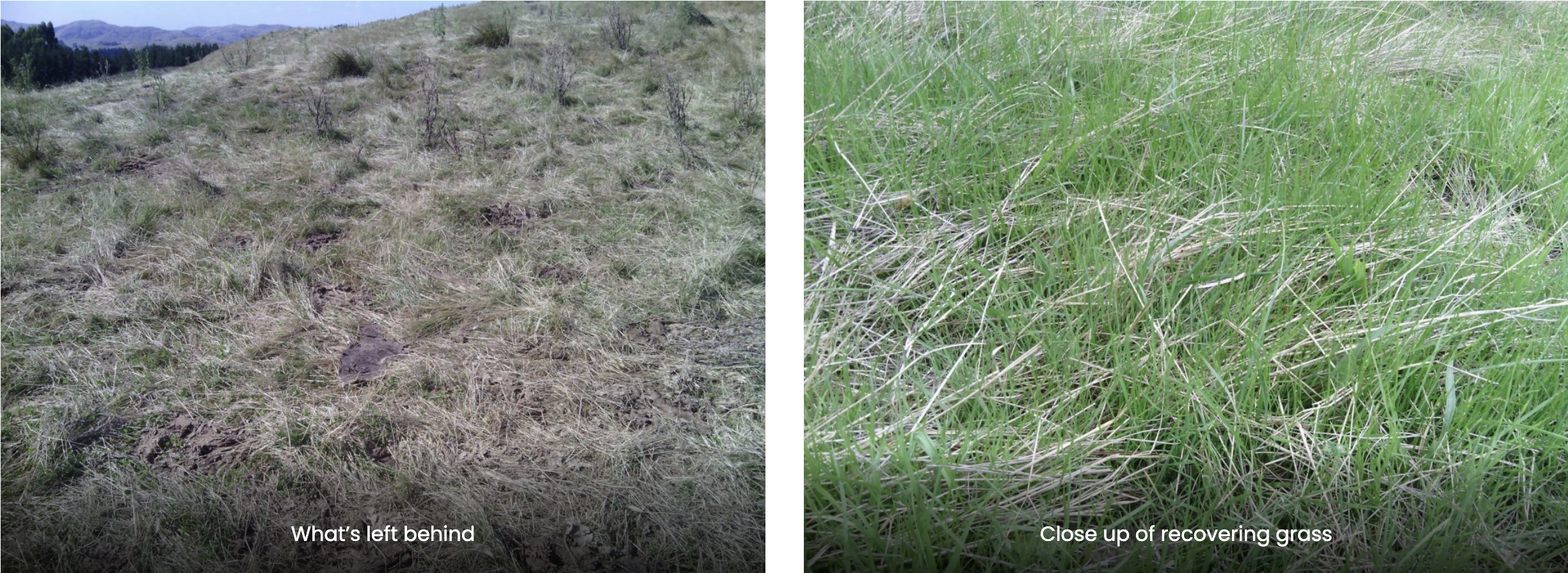
Glenlands Farm uses the following grazing management principles.
- Allow full recovery of pastures (grazing at the top of the pasture growth curve)
- During fast growth periods we light graze pastures with faster rotations building covers. Taking some areas out of grazing to create a reserve when growth slows.
- Keep soils covered especially during summer and when wet.
- Change it up – don’t do the same thing in the same paddock at the same time of year e.g. calving paddock and weaning paddock
- Make grazing decisions on species we want – not leaving animals in the paddock to clean up undesirables.
- Encourage diversity of grasses, legumes, and even weeds – yes even weeds are diversity.
The Heald Farm
what: Dairy farm
where: Manawatu
instagram: @russ_regenag
Russell and Charlotte Heald are regenerative dairy farmers in Norsewood, New Zealand, who focus on building an holistic farming system, and support others to do likewise.
They transitioned from conventional to regenerative and organic farming starting in 2017, emphasising the health and well-being of their animals, the land, and their family. Their philosophy integrates a diverse range of practices, including reducing synthetic inputs to zero, promoting biodiversity through multi-species pastures (“cow salad”), single daily milking, all of which reduce stress on their cows and team.
At the time of writing, they were running 320 cows, milking once a day and moving them three times a day using adaptive grazing.
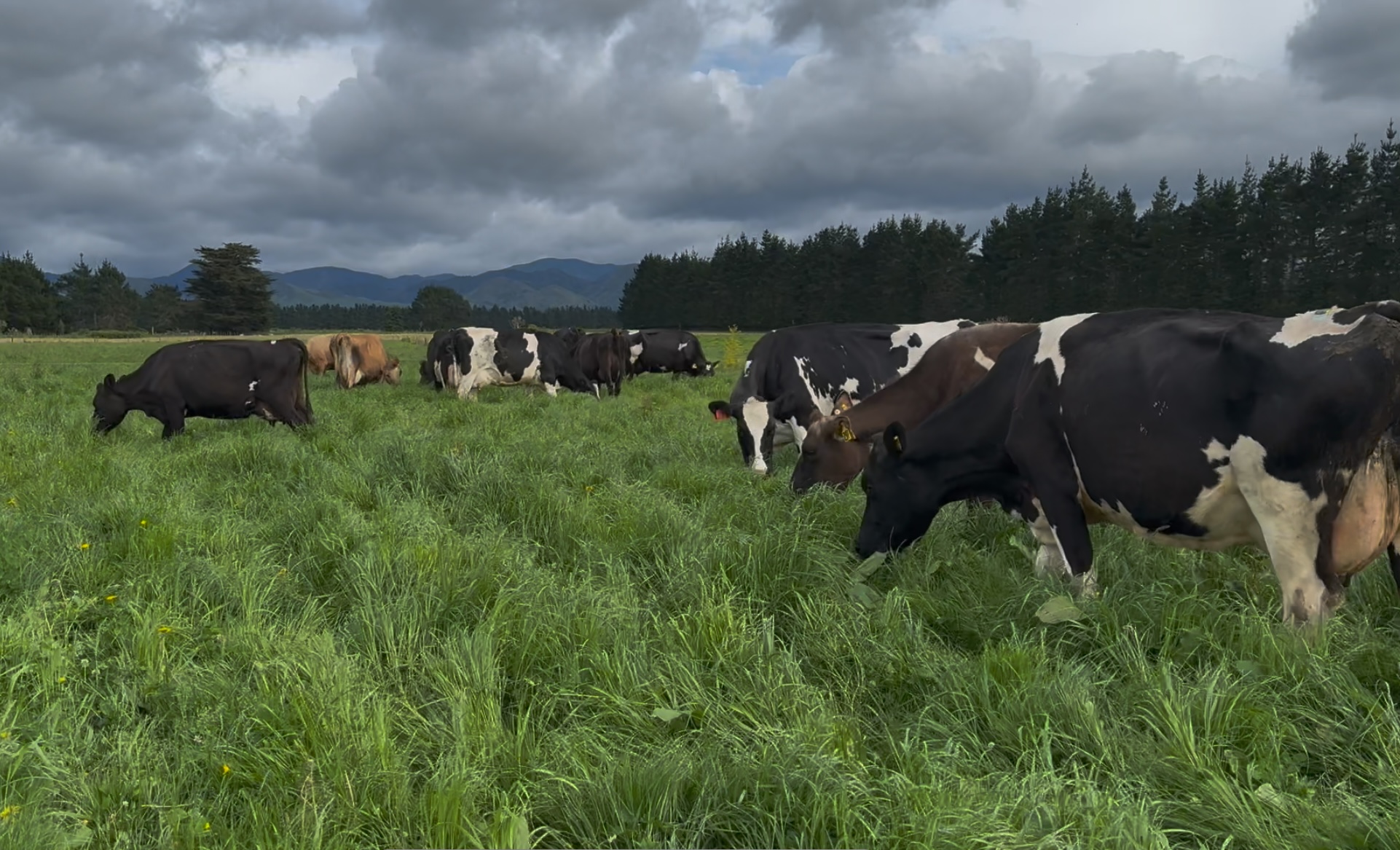
Russell and Charlotte are creating a low-stress farming system. This shift has resulted in reduced costs, increased profits, better pasture recovery during droughts, and improved animal health.
Their efforts have garnered recognition, including winning the 2024 Organic Regenerative Farmer of the Year Award, honouring their leadership in regenerative organic agriculture.
- Instagram video Russell responding to a question from Janet Redmond
- Instagram video Sahra talking about her transition from conventional farming
Lake Hawea Station
what: Sheep
where: Otago
website: lakehawestation.com
Lake Hawea Station is a 6,500-hectare high-country property on the shores of Lake Hawea, New Zealand, owned and operated by the Ross family since 2018. Their achievements in regenerative agriculture and environmental stewardship have positioned them as industry leaders.
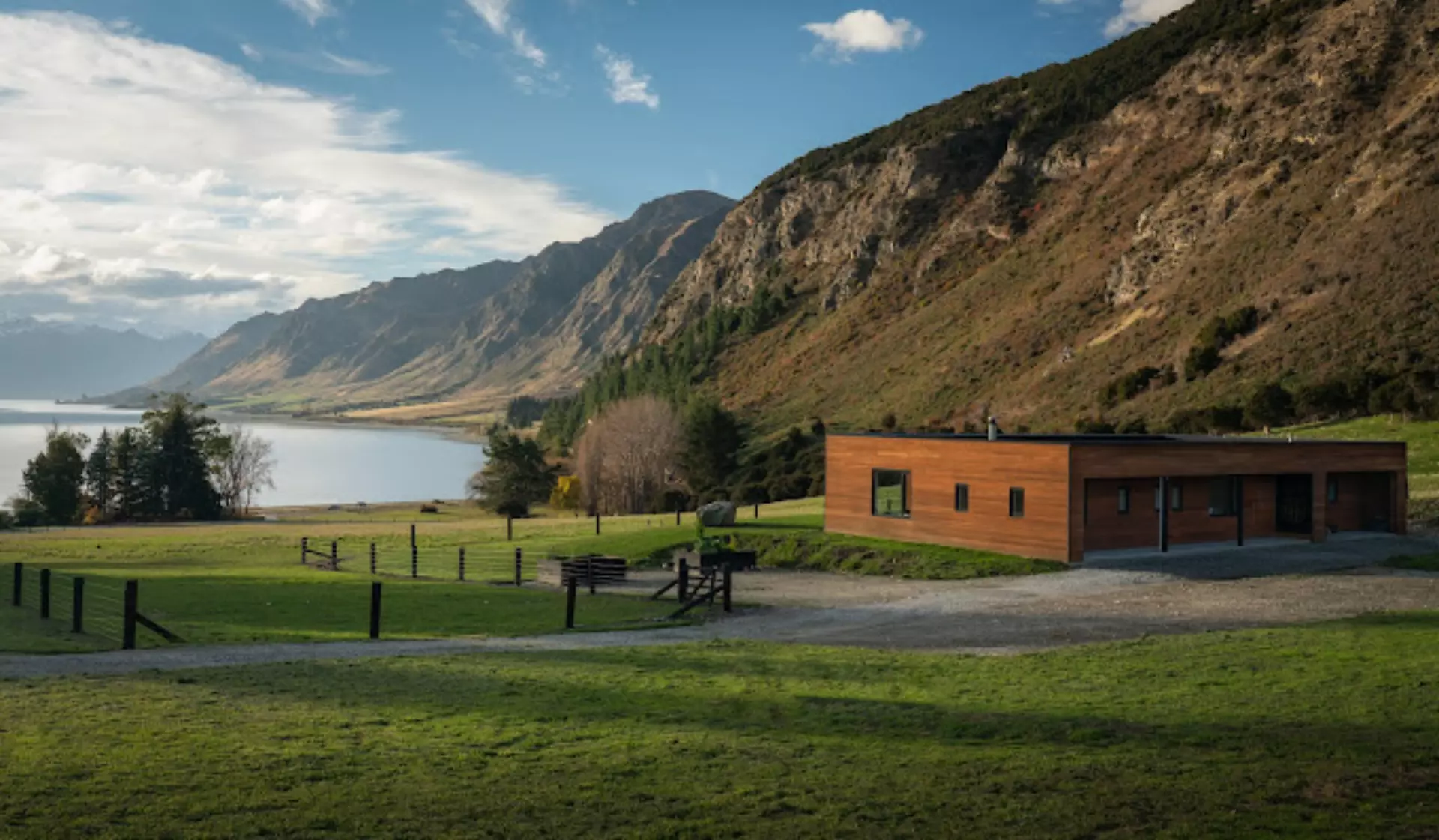
They are the first farm in New Zealand to achieve "Carbon Positive" certification, sequestering over 3,966 tonnes of carbon annually while maintaining a productive Merino sheep and Angus cattle operation. The station also prioritises biodiversity, with extensive efforts in tree planting, pest control, and habitat restoration to support rare and endangered species such as the Clutha flathead galaxias and native falcons.
The Ross family integrates innovative practices such as regenerative pastures, genetic advancements for methane reduction, and seaweed-based animal health products.
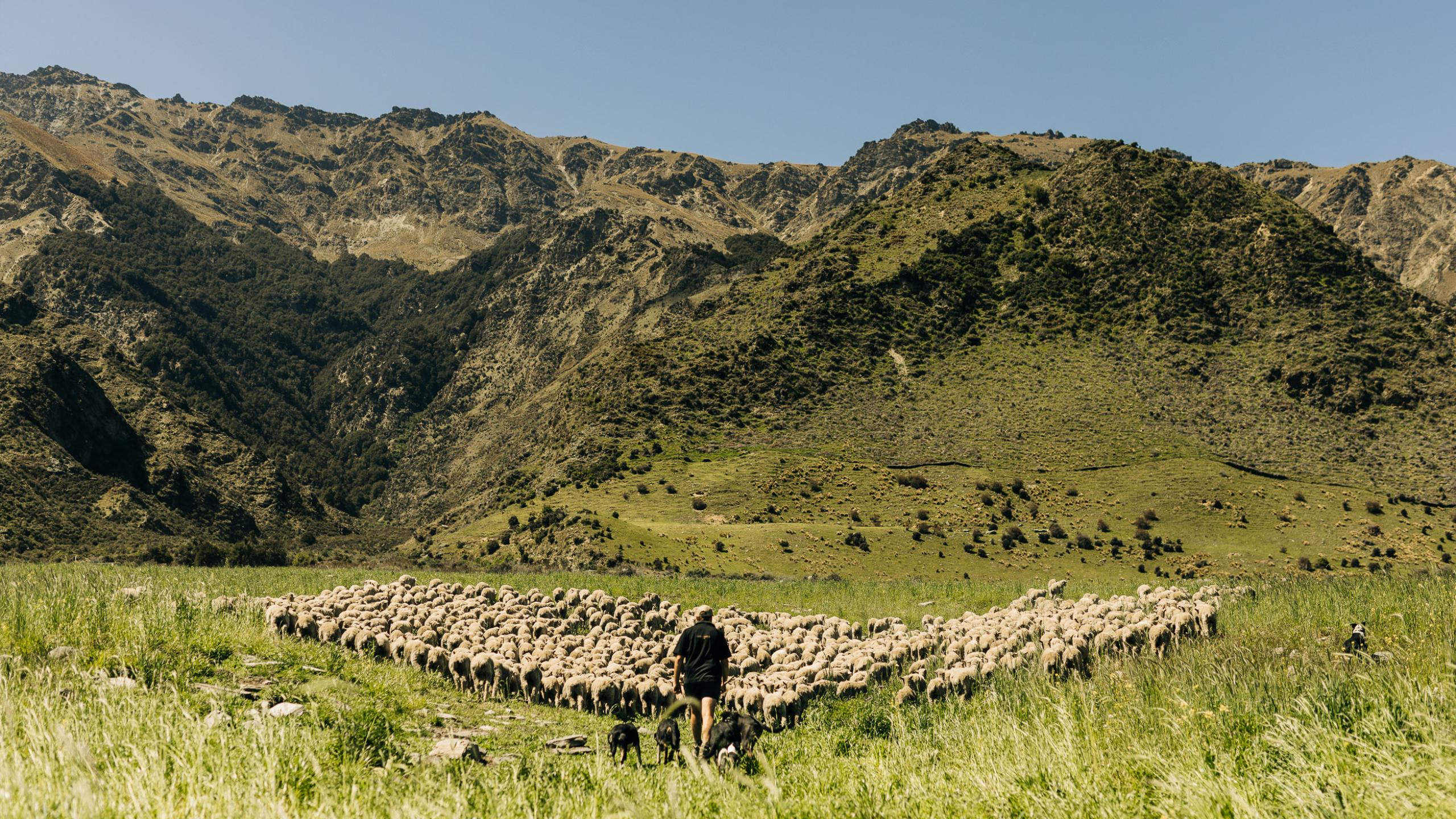
Their Merino wool is marketed internationally under the "Carbon Clear" brand, connecting consumers with their sustainable practices. The station employs modern carbon accounting and certification systems in collaboration with organizations like Toitū Envirocare, enabling verification and communication of their environmental impact.